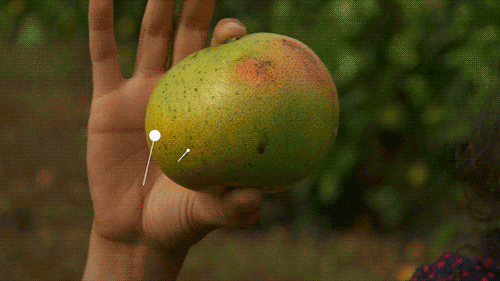Could spinach genes save the world's oranges?
Will my oranges taste like spinach? In short, no. One day soon however, you may see oranges on the breakfast table with genetic material from the leafy green, and it’s not for extra iron.
A mysterious disease is wreaking havoc on orange groves around the world and without any luck finding a naturally resistant strain, science is turning to genetic engineering to save the citrus industry.

In this week’s TechKnow, we travel to the USDA Agricultural Research Service lab in Ft. Pierce, Florida to look at solutions being developed to help save citrus trees. The scientists there have made progress on methods including heat treatments to kill bacteria, and using RNAi to kill the bugs that spread it.
These solutions are far from being a cure-all however, and as the lab’s director Dr. Calvin Arnold explained, only stave off the disease in the short-term, until a long-term solution can be put in place. Arnold believes the only silver bullet would be a resistant strain of citrus, and as there are no known naturally occurring cultivars, all eyes are on a handful on scientists willing to brave the controversy of genetic modification.
The most promising research in this field is being carried out by the United States Sugar Corporation in collaboration with Texas A&M University. "The New York Times" profiled their work in July with a comprehensive article on the various approaches to the GM effort, as the researchers searched for a gene that would make oranges resistant to citrus greening.
The finalists were narrowed down to genes from a pig, a spinach plant, and a synthetic gene created in a lab. Though all three were effective in providing resistance, the spinach gene was chosen for trials, mainly because it was thought to be the most palatable from a PR perspective.
These GM trees have been planted in a field trial that will assess their safety compared to conventional oranges, a process that will take several years. The gene that makes the oranges resistant does not affect color or taste, and there is a broad scientific consensus that GM foods have been shown to be no less safe than conventional foods. Still critics dispute their innocuousness, claiming that GMOs carry risks not yet discovered.
Last year the orange harvest declined 9 percent due to citrus greening, and overall acreage has declined nearly 40 percent in the last 20 years. It may only be a matter of time before your breakfast OJ comes from citrus with a spinach gene. It may not be green, but would you drink it?
Error
Sorry, your comment was not saved due to a technical problem. Please try again later or using a different browser.